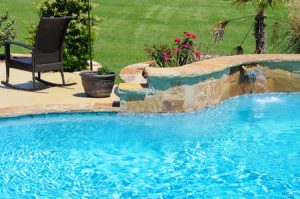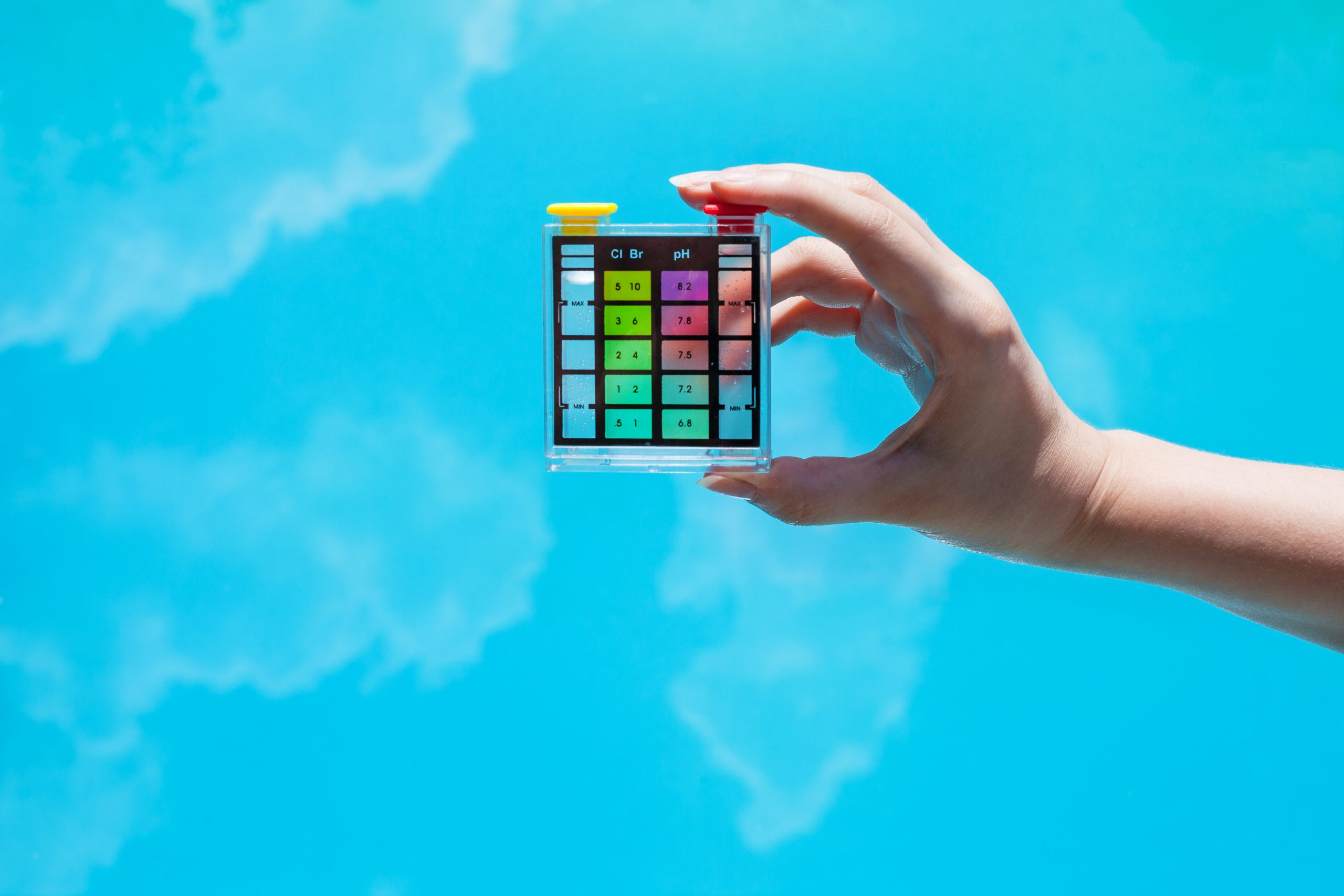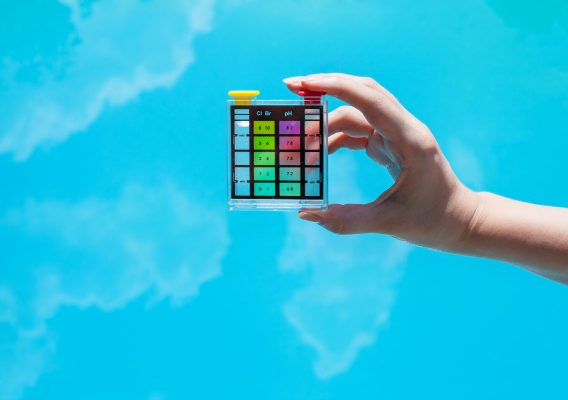
Even if you use home test kits or test strips to check your pool chemistry, it is important to have your pool water tested by a professional swimming pool store regularly. Professional pool water testing includes accurate readings of all chemicals and minerals that may be difficult to read from home test kits or strips.
Home testing is absolutely necessary to keep an eye on all pool chemicals such as chlorine levels, pH, alkalinity and hardness, although professional water testing could reveal an unhealthy situation you may not be aware of.
The Swimming Pool Store makes it easy to test and balance your pool water chemistry. LaMotte WaterLink® Spin Lab provides fast and accurate testing of all pool chemicals and minerals. Put your mind at ease knowing all your swimmers are healthy with guidance from professional pool techs and sophisticated water testing.
Sparkling Clear Pool Water with Complete Water Testing
Keep your pool sparkling clean and inviting with a complete swimming pool water test including:
• Free and Total Chlorine
• pH and Alkalinity
• Calcium Hardness
• Cyanuric Acid
• Iron
• Borate
• Copper
• Manganese
• Phosphate
• Total Dissolved Solids (TDS)
• Salt (for salt water pools)
Chlorine and pH
Maintaining the proper chlorine level is important for the health of all swimmers to eliminate germs, bacteria and viruses. If the rest of your water is not balanced properly, however, your chlorine may not work effectively either. This means that you could have an adequate reading of chlorine on your test trip and be unaware of underlying problems that would render it less effective. If your chlorine gets too high your swimmers will get red eyes and itchy skin. Your chlorine level should stay between 1 and 3 parts per million (ppm) for a healthy pool.
If your pH is too low, it can decrease the effectiveness of chlorine and cause cloudy water. If this happens your chlorine is not adequate to kill bacteria and algae. If your pH is too high the chlorine will dissolve even faster. To maintain proper chlorine levels, and to avoid swimmer discomfort with skin and eye irritation, maintain a range of 7.4 – 7.6 for an optimum pH level.
Total Alkalinity
Total alkalinity should be closely monitored as an out of range reading can cause a number of problems with pH and calcium which lead to bigger problems. If the alkalinity is low, the pH will be low, and if your alkalinity is too high it can cause a high pH reading as well. Aim for a reading close to 100 ppm for the average swimming pool.
While chlorine, pH and alkalinity are common readings on test strips, you should have a regular water analysis to read the levels of other minerals. High levels of phosphate may indicate a condition ideal for algae growth. We’ll provide solutions to protect your water from phosphates and organic contaminants.
If cyanuric acid accumulates to an unhealthy high level it can also cause cloudiness and will reduce the free chlorine. If this happens, you typically have to drain some water from your pool as this is the only way to get it back to a healthy condition.
The Swimming Pool Store Keeps Your Water Balanced and Healthy
Let us take the guesswork out of what your test strips are telling you and give you an accurate analysis of your pool water. We’ll let you know exactly what you should do keep your swimming pool crystal clear and healthy. You owe it to your swimmers to maintain healthy pool water that is free of contaminants and feels refreshing rather than irritating to skin and eyes.
The Swimming Pool Store offers free pool water analysis and all the needed pool chemicals for clean and healthy water. We provide swimming pool services including maintenance, heater and salt chlorine generator installs, openings, closings and much more. Contact us for more information on maintaining a healthy swimming pool chemical balance.


